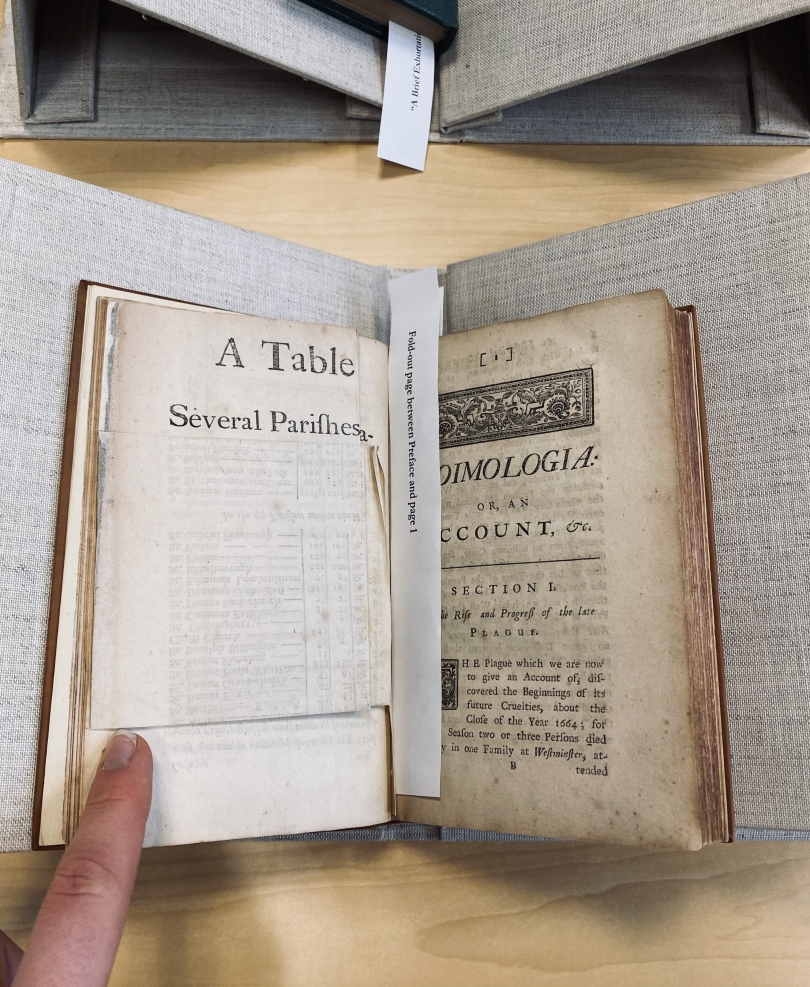

Nathan Hammerschmitt Le Gal


Great Issues Scholars: Traveling Back in Time
The Great Issues Scholars (GIS) is a program available to first-year students that brings in guest speakers and hosts simulations on topics of global significance. As the organization that organizes the program, the Dickey Center for International Understanding is Dartmouth's hub for international relations and related opportunities. The topics covered in GIS—most notably international security, global health, and climate change—provide a taste of what the Dickey Center has to offer. I've covered GIS programming in the past; more specifically, I wrote about a wargaming simulation that you can access here.
In my most recent GIS event, I headed over to Rauner Special Collections Library—Dartmouth's home to archival and rare documents. I had visited Rauner in the past (it's an awesome study spot), but this was an opportunity to engage more fully with the library (though some classes actually require that you go to Rauner for assignments!).
After getting situated in a cozy and rather hidden room, the other GIS students and I examined the documents that were placed on our table. The event essentially consisted of examining and understanding pandemics via the documents that were provided. On our table, there were four leather-bound books from the 1600s that all had different accounts of the Great Plague in London. One focused on the medicinal practices of the time and was written by an MD—the other focused on the religious ramifications and implications. Between the typefaces set by hand, the hand-made covers, and the occasional handwritten notes on each page, the books offered a fascinating glimpse into the reality that was the great plague in London.

Another table had documents that covered the history of the Spanish Flu on-campus. Despite occurring over 100 years ago (1918ish), the story of the Spanish Flu at Dartmouth had surprising parallels to the story of Covid-19. Some of the documentation provided included letters written by students about their experience dealing with the affair (there were the standard complaints of being quarantined and not being able to have the traditional college experience). Apparently the Gymnasium had been used as a medical space for overflow patients—a measure that's eerily similar to the measures taken only a few years ago. Other students wrote about acquiring their books, settling into their classes, and one even sketched an overhead map of campus. Again, it was surprising to see how much hadn't changed and how much had. While Dartmouth's campus has vastly expanded and grown since then, the general experience of students seems relatively similar.
I'm now realizing that as I write these words, I'm also becoming part of Dartmouth's history. That's part of why creating anything here is so amazing—it's here to stay. Maybe another student, many years from now, will read this post and analyze what student life was like in the 2020s.
Posts You Might Like

Ever wanted to know what the Biology Department is like at Dartmouth? Grab lunch with Professor Dolph and me as we chat all about what to expect!


Discover the journey of professor Alan Li, who has been teaching Mandarin for over 35 years—including 20 years at Dartmouth.


My experience in my first ever literature class!


All about Writing 5 (and my favorite watches from the course materials!)


During my sophomore spring quarter, I took on the challenge of four STEM courses, and while it has been intense, the unexpected connections across subjects and the joy of learning have made it one of my most rewarding academic experiences yet.


Hello finals week! As I close out a finals season, dive into my bag to see just what gets me through this time of the term!


On the Beijing LSA+, we have real-world Chinese practice every Friday. Last week we went to two neighborhoods, Houhai and Shichahai, and wrote a photo log about our experience. Read along to see what immersive language learning here looks like!


Curious about what a class looks like on a Dartmouth Foreign Study program? Read on!


With so many undergraduates hoping to participate in the exceptional atmosphere of the Tuck School of Business, Tuck created programs specifically designed for us. I was fortunate enough to take part in one of them: TuckLAB Entrepreneurship.
